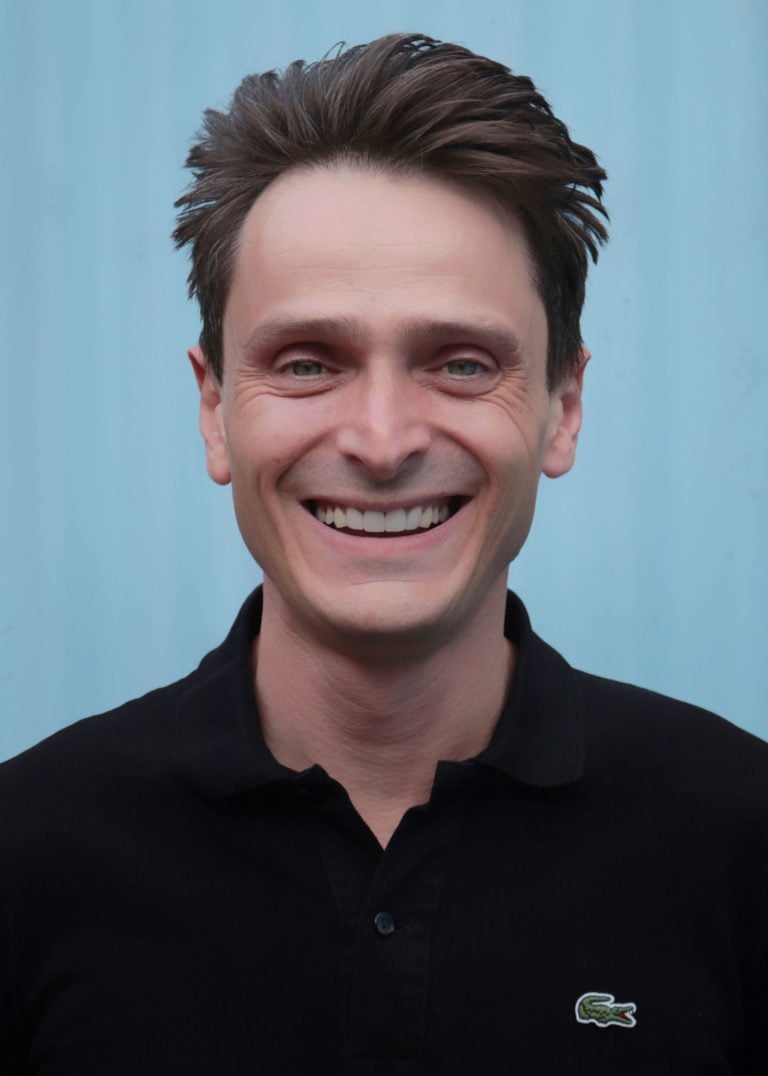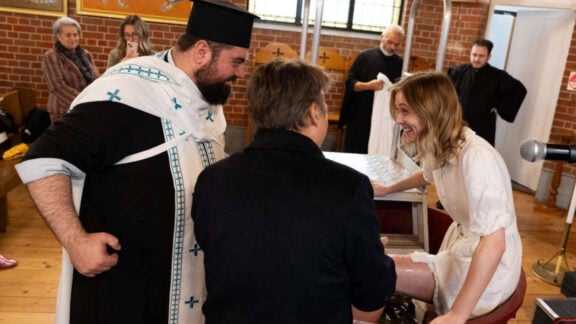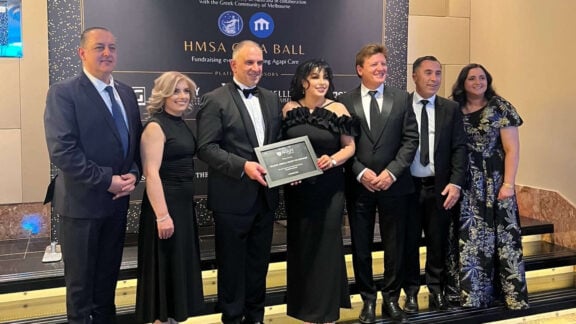When Matthew Staios first entered the field of neuropsychology, he was told that the cognitive tests available for the diagnosis of dementia were gold standard. And they are, if you are part of the dominant culture, and have been educated to think a certain way. If however you happen to be one of the six million culturally and linguistically diverse Australians, then the tests are – to put it simply – inappropriate.
CALD Australians are in fact two to three times more likely to be misdiagnosed with dementia.
It didn’t take long for Mr Staios to realise the shortfalls that existed.
“I kind of always wanted to ask the question about why these things weren’t necessarily working with these people, particularly when I assist elder Greeks. I’d look at them and I’d think ‘well at a functional level, you’re doing quite well, but why are they performing so poorly on these tests?'”
GETTING TO THE BOTTOM OF IT
Over four years ago, Mr Staios decided to take matters into his own hands to get to the bottom of his observations. He launched a research project, looking into the effectiveness of the screen tests used to diagnose dementia, with a focus on the Greek population, looking at how they are constructed and the demographic variables that underpin the way people perform, and how that performance is interpreted statistically.
The idea was to have healthy participants, with no history of any psychological, psychiatric or neurological medical conditions, take the screen tests.
Mr Staios’ findings were staggering; comparing the results of those with Alzheimer’s Disease and those of healthy people, they couldn’t distinguish the two.
“Using the recommended cut-off criteria, 13 per cent of people met criteria for impairment in the copy of the Greek cross, 52 per cent met criteria for impairment when it came to copying the four pointed star, 30 per cent met criteria for impairment for overlapping pentagons, and 91 per cent met criteria for impairment in copy of the 3D cube – nobody could copy a cube, it was impossible.
“These guys are essentially performing at the same level as people with Alzheimer’s Disease. So this task in itself isn’t sensitive or specific at picking up the disease.”
Such tests are carried out to deduce whether a person has spacial impairment, which can be caused as a result of dementia. What Mr Staios discovered was that the concept of three dimensionality wasn’t being represented in the Greek participants’ brains.
WHY ARE GREEK AUSTRALIANS PERFORMING SO POORLY?
This in itself is a small part of this study, but Mr Staios says that it shows, even at a very basic level, that Greeks have difficulty with completing what might be viewed as a simple task.
He says a key factor for the poor results is lack of formal education. The vast majority of first generation Greek Australians have between three and five years of education under their belt, which often equates to just one year. A significant factor is Greece’s history; the country went from World War One and Two, to Civil War, and further political and economic instability, in addition to migrating abroad to the other side of the world, where many went into blue collar jobs.
READ MORE: Documentary ‘Storm in a Teacup’ sheds light on experience of dementia
“It’s a reflection of their level of education and the fact that they simply haven’t had the opportunity within these particular types of tasks; picking up a pencil, our fine motor skills, if you think about what they were like maybe at five or six years old, they were quite crude, we couldn’t quite grasp the concept of geometry, how things were represented. But over time our brains kind of fill those gaps,” he explains.
“So when it comes to the Greek population, we’re not really testing something that was developed or was there to begin with.”

OTHER CHALLENGES AND CULTURAL BIAS
Aside from the screening tests themselves, the use of an interpreter in itself can be problematic. While Mr Staios says he has worked with some really great interpreters, they are often few and far between. Not only can it be disruptive, but the interpreters as a conduit can either over interpret, or misinterpret.
“Sometimes people waffle on and the interpreter will respond with one sentence, and I’m like ‘what did they say? What was actually being said?’ So you really miss out on the richness of that clinical information that’s being conveyed, which can be problematic because for us as clinicians, we want to know as much as we possibly can in that moment: how that person’s communicating, what types of words they’re using, all that stuff really helps us paint a picture,” he explains.
Mr Staios’ findings while insightful and necessary, are without doubt concerning, with many of his colleagues still digesting the results, taken aback at the lack of distinction between healthy and unhealthy samples.
He says that in many cases, doctors are relying on the test output alone to confirm a dementia diagnosis, which can also cause conflict where the individual might be functioning quite well in their day to day life, able to cook for themselves, clean, pay their bills, go shopping, but yet are performing below standard on tests.
One key contributor is anxiety, which Mr Staios says is quite prominent among older Greek Australians.
“It feeds into stigma around diseases, their lack of health literacy, their understanding of dementias as well. I think a lot of people associate that with something like schizophrenia … So to them having a dementia like Alzheimer’s or one of the variants, they think ‘I’m crazy, they’re going to lock me up.’ But that’s not the case at all.”
Research has shown that people from Greek and Italian backgrounds tend to engage the available services when they’re in the throes of a disease, when things are a little bit more difficult to manage, which Mr Staios says has a lot to do with the medical system not being geared towards ethno-specific services.
“There’s a lack of understanding. Greeks haven’t been considered in research. You pick up medical research papers and some of the exclusion criteria are those from non-English speaking backgrounds. So understanding of mental health and neurological conditions and brain disorders is biased at that level as well,” he says.
“Cognitive processes are arguably universal, stuff like memory, attention, but the way that people take information in and the way they process it, is culturally bound and impacts the way they might respond to a situation. So we’re kind of driving blind at this point in terms of trying to be able to provide them with the specific set of strategies to deal with these types of issues, because we don’t know what we’re looking at.”
THE CONSEQUENCES OF A MISDIAGNOSIS
The consequences of a misdiagnosis can be dire, as Mr Staios has witnessed first-hand.
A common scenario is that somebody presents to a hospital, and concern is raised over the individual’s cognitive function. They are then assessed using current tests, which in the case of Greeks, would see them perform below expectation, and in many cases may not even understand the questions being asked. In the instance a clinician determines the patient does not have capacity, an administrator takes over, VCAT steps in, and gives them two options: residential care or 24 hour support, which most people cannot afford.
“Having worked on several cases now where people have been misdiagnosed. It’s really, really concerning that people underestimate the impact of culture,” he says.
READ MORE: Great turnout at dementia conversation event hosted by Oakleigh Grammar
“I mean it’s devastating having somebody kept in the hospital for three months, while they’re waiting for the powers that be to go through the case, potentially look at some of the insensitivities that arose as a result, not considering this person’s culture. It has an impact on people’s mental states. I just think of the past, when elder people from non-English speaking backgrounds haven’t had anybody to advocate on their behalf. What if somebody’s made that call and they’ve ended up in a nursing home? I’m sure it might have happened; people slip between the cracks all the time.”
MAKING CULTURALLY SENSITIVE TESTING WIDELY AVAILABLE
By mid 2020, Mr Staios is aiming to publish data for 25 new tests across three age groups (70-74, 75-79, and 80 and over), developed in Greece, that will be freely available to practitioners across Australia.
In addition to content relevant to Greeks, they also incorporate everyday tasks, with questions on matters that participants encounter in their day to day lives.
Almost five years on since embarking on his research, Mr Staios is pleased, but admits it is somewhat of an “anti-climax”. It hasn’t been an easy task advocating for elderly Greeks, and raising the funds necessary. But he is thankful for those who have rallied behind the worthy cause, namely fellow Greek Australian, Labor MP Maria Vamvakinou.
“I’m grateful to have been in an opportunity to give something back, to use the knowledge that I’ve managed to acquire through the last 10 years at university and be able to think about some of the issues that are facing our community – I think that in itself is a really great reward,” he says.
“People of that generation came over with nothing and gave us so many opportunities. But I think it’s important for us to recognise some of the issues that they’re facing now and be really, really mindful and try to alleviate some of those barriers.”
Mr Staios’ research has opened a Pandora’s Box of sorts, bringing to light that similar research is required for other CALD groups in Australia, and beyond – a quest that takes a lot of passion, advocacy, and funding.
“People are very quick to say we live in this fantastic, multicultural society. We don’t, and if you think so, you’re so disconnected from what’s going on around you. The concept of multiculturalism, it doesn’t work in theory because there’s always going to be a dominant culture that dictates the norm, and we’re seeing that now in the hospital system.
“I’ve recognised a significant gap in this area of research in Australia and I’ve produced undeniable results here that have a massive impact on the way that people are being inappropriately assessed in hospitals in mainstream Australia wide. So this should be an issue that’s picked up by health ministers and other people that represent Greek minority groups yet we’re not doing anything.
“So how do we stop that big wheel from turning and make adjustments to it in that process? Denmark are seeing the same issues at the moment, as is America. In fact by 2050 the US has said that 60 per cent of their population won’t be testable; they don’t have tests that are bilingual, they’re all monolingual, the data’s out, so where do we go from here?”
Mr Staios is certainly doing his part to assist. He will be going global with his advocacy for elderly Greeks in 2021, with plans to head to the US, where he will continue his research with a smaller sample of Greek Americans in cities with large Greek populations such as New York City’s neighbourhood of Astoria, and Chicago.
“The ultimate goal for me is to make these tests global for Greek migrants residing across the world; to have access to a gold standard of diagnostic cognitive tests to help people provide interventions for them at that level and also offer them accurate and reliable early diagnostic tools – that’s going to be really important in the years to come.”









